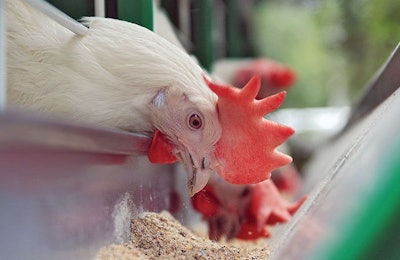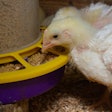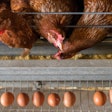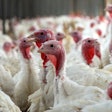
A vital part of poultry health is knowing what prebiotics and probiotics to give the birds, and when.
Lisa Bielke, assistant professor at the Department of Animal Sciences at Ohio State University, spoke about the use of prebiotics and probiotics for control of Salmonella and Campylobacter on the farm at the Processing for Antibiotic Free Production Workshop on January 30 at the International Production & Processing Expo (IPPE) in Atlanta.
“There is no one prebiotic that will solve all of our problems,” Bielke said. “The same for probiotics. We have to study what prebiotics and probiotics are going to address, or the problem they are trying to solve.”
Bielke is researching poultry health, including probiotics selection, with a goal of providing means of producing poultry in a sustainable manner that promotes health and well-being while increasing profitability.
A prebiotic is a substrate that is selectively utilized by host micro-organisms, conferring a health benefit. Bielke said health effects can reach beyond gastrointestinal health, and causality should be shown with studies with appropriate control groups.
“The benefit must also be confirmed in the host for its intended use and mediated through the microbiota,” Bielke said.
Bielke said when considering prebiotic use, you should ask:
- How does it affect the microbiota?
- How do the microbiota changes affect Salmonella and Campylobacter?
- Well the reduction of pathogens be sustained through to processing?
Probiotics are live micro-organisms which, when administered in adequate amounts, confer a health benefit on the host. Probiotics are intended to decrease dysbiosis, an off-balance gut, and increase eubiosis, a healthy, balanced gut.
Bielke said there’s a long list of mechanisms of actions for probiotics. Immunological effects are rare, direct antagonism is frequent and competitive exclusion of pathogens is widespread, similar to colonization resistance.
“There’s not a lot of bacteria in the gut at hatch,” Bielke said. “Once you establish a microbiota in the gut, it’s harder for birds to get infected.”
Bielke said birds are harder to colonize with Campylobacter, and if birds are colonized with an adult microbiota, they become resistant to Salmonella.
You have to choke them with Salmonella to get them infected,” Bielke said.
When selecting a probiotic for food safety, Bielke recommends asking these questions:
- Is there a probiotic appropriate for the problem being experienced?
- Can I deliver this probiotic to the gut?
- What is the mechanism of action?
- Where in the production chain will the probiotic be most effective?
















